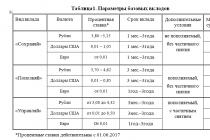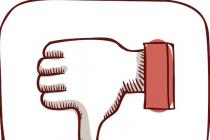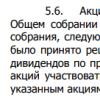Article 708. Time limits for completing work
1. The work contract specifies the start and end dates for the work. By agreement between the parties, the contract may also stipulate deadlines for completing individual stages of work (interim deadlines).
Unless otherwise provided by law, other legal acts or not provided for by the contract, the contractor is responsible for violation of both the initial and final, as well as intermediate deadlines for the completion of the work.
2. The initial, final and intermediate deadlines for completing the work specified in the contract may be changed in cases and in the manner provided for by the contract.
2. Unless otherwise provided by the contract, the contractor, in the presence of the circumstances specified in paragraph 1 of this article, has the right to refuse to perform the contract and demand compensation for losses.
Article 720. Acceptance by the customer of work performed by the contractor
1. The customer is obliged, within the time frame and in the manner prescribed by the contract, with the participation of the contractor, to inspect and accept the work performed (its result), and if deviations from the contract are discovered that worsen the result of the work, or other shortcomings in the work, immediately report this to the contractor.
2. A customer who discovers deficiencies in the work during its acceptance has the right to refer to them in cases where the act or other document certifying acceptance stipulated these deficiencies or the possibility of subsequent submission of a demand for their elimination.
3. Unless otherwise provided by the contract, a customer who accepted the work without inspection is deprived of the right to refer to defects in the work that could have been identified during the usual method of acceptance (obvious defects).
4. A customer who discovers, after acceptance of the work, deviations from the work contract or other defects that could not be identified during the usual method of acceptance (hidden defects), including those that were deliberately hidden by the contractor, is obliged to notify the contractor about this within a reasonable time. time limit for their discovery.
5. If a dispute arises between the customer and the contractor regarding deficiencies in the work performed or their causes, an examination must be appointed at the request of either party. The costs of the examination are borne by the contractor, except in cases where the examination establishes the absence of violations by the contractor of the work contract or a causal connection between the actions of the contractor and the detected deficiencies. In these cases, the costs of the examination are borne by the party that requested the appointment of the examination, and if it is appointed by agreement between the parties, both parties equally.
6. Unless otherwise provided by the contract, if the customer evades acceptance of the work performed, the contractor has the right, after a month from the day when, according to the contract, the result of the work should have been transferred to the customer, and subject to subsequent double warning to the customer, sell the result of the work, and the proceeds, minus all payments due to the contractor, make a deposit in the name of the customer in the manner prescribed by Article 327 of this Code.
7. If the customer’s evasion from accepting the work performed resulted in a delay in delivery of the work, the risk of accidental destruction of the manufactured (processed or processed) item is recognized as having passed to the customer at the moment when the delivery of the item should have taken place.
Article 721. Quality of work
1. The quality of the work performed by the contractor must comply with the terms of the contract, and in the absence or incompleteness of the terms of the contract, with the requirements usually imposed on work of the corresponding type. Unless otherwise provided by law, other legal acts or a contract, the result of the work performed must, at the time of transfer to the customer, have the properties specified in the contract or determined by the usually imposed requirements, and within a reasonable period of time be suitable for the use established by the contract, and if such use is not is provided for the normal use of the result of work of this kind.
2. If the law, other legal acts or the procedure established by them provide for mandatory requirements for work performed under a work contract, the contractor acting as an entrepreneur is obliged to perform the work in compliance with these mandatory requirements.
The contractor may assume a contractual obligation to perform work that meets quality requirements that are higher than those established and binding on the parties.
Article 722. Guarantee of quality of work
1. If the law, other legal act, work contract or business customs provide for a warranty period for the result of the work, the result of the work must comply with the terms of the quality contract throughout the entire warranty period (clause 1 of Article 721).
2. The guarantee of the quality of the work result, unless otherwise provided by the contract, applies to everything that makes up the work result.
Article 723. Contractor’s liability for poor quality of work
1. In cases where the work was performed by the contractor with deviations from the contract that worsened the result of the work, or with other shortcomings that make it unsuitable for the use specified in the contract, or in the absence of a corresponding condition in the contract of unsuitability for normal use, the customer has the right, if Unless otherwise established by law or contract, at your own discretion, require the contractor to:
elimination of deficiencies free of charge within a reasonable time;
a proportionate reduction in the price set for the work;
reimbursement of their expenses for eliminating defects when the customer’s right to eliminate them is provided for in the contract ().
2. The contractor has the right, instead of eliminating the deficiencies for which he is responsible, to perform the work again free of charge with compensation to the customer for losses caused by the delay in performance. In this case, the customer is obliged to return the previously transferred work result to the contractor, if the nature of the work makes such a return possible.
3. If deviations in the work from the terms of the contract or other shortcomings in the result of the work have not been eliminated within a reasonable period established by the customer or are significant and irreparable, the customer has the right to refuse to perform the contract and demand compensation for losses caused.
4. The condition of the contract on the release of the contractor from liability for certain defects does not relieve him of liability if it is proven that such defects arose as a result of the contractor’s guilty actions or inaction.
5. The contractor who provided the material to perform the work is responsible for its quality in accordance with the rules on the seller’s liability for goods of inadequate quality ().
Article 724. Time limits for detecting inadequate quality of work results
1. Unless otherwise established by law or a contract, the customer has the right to present claims related to the inadequate quality of the work result, provided that it is identified within the time limits established by this article.
2. In the event that there is no warranty period established for the result of the work, claims related to defects in the result of the work may be presented by the customer, provided that they were discovered within a reasonable time, but within two years from the date of delivery of the result of the work, unless otherwise deadlines are not established by law, contract or business customs.
3. The customer has the right to make claims related to defects in the work result discovered during the warranty period.
4. In the event that the warranty period provided for in the contract is less than two years and defects in the work result are discovered by the customer after the expiration of the warranty period, but within two years from the date provided for in paragraph 5 of this article, the contractor shall be liable if the customer proves that defects have arisen before the delivery of the work result to the customer or for reasons that arose before this point.
5. Unless otherwise provided by the work contract, the warranty period (clause 1 of Article 722) begins to run from the moment when the result of the work performed was accepted or should have been accepted by the customer.
6. The rules contained in paragraphs 2 and 4 of Article 471 of this Code are applied to the calculation of the warranty period under a work contract, unless otherwise provided by law, other legal acts, agreement of the parties or follows from the specifics of the work contract.
Article 725. Limitation period for claims of inadequate quality of work
1. Deadline limitation period for claims made in connection with inadequate quality of work performed under a contract, it is one year, and in relation to buildings and structures it is determined according to the rules of Article 196 of this Code.
2. If, in accordance with the work contract, the result of the work is accepted by the customer in parts, the limitation period begins from the day the result of the work is accepted as a whole.
3. If a warranty period is established by law, other legal acts or a work contract and a statement regarding defects in the work result is made within the warranty period, the limitation period specified in paragraph 1 of this article begins from the date of the statement of defects.
Article 726. Obligation of the contractor to convey information to the customer
The contractor is obliged to transfer to the customer, along with the result of the work, information relating to the operation or other use of the subject of the contract, if this is provided for by the contract or the nature of the information is such that without it it is impossible to use the result of the work for the purposes specified in the contract.
Article 727. Confidentiality of information received by the parties
If a party, due to the fulfillment of its obligation under a work contract, has received from the other party information about new solutions and technical knowledge, including those not protected by law, as well as information in respect of which the owner has established a regime trade secret, the party who received such information does not have the right to disclose it to third parties without the consent of the other party.
The procedure and conditions for using such information are determined by agreement of the parties.
Article 728. Return by the contractor of property transferred by the customer
In cases where the customer, on the basis of paragraph 2 of Article 715 or paragraph 3 of Article 723 of this Code, terminates the contract, the contractor is obliged to return the materials, equipment provided by the customer, the thing transferred for processing (processing) and other property or transfer them to the person specified by the customer, and if it turned out to be impossible - to reimburse the cost of materials, equipment and other property.
Article 729. Consequences of termination of a work contract before acceptance of the work result
In the event of termination of a work contract on the grounds provided for by law or contract, before the customer accepts the result of the work performed by the contractor (clause 1 of Article 720), the customer has the right to demand that the result of the unfinished work be transferred to him with compensation to the contractor for the costs incurred.
§ 2. Household contract
Article 730. Household contract
1. Under a domestic contract, the contractor carrying out the relevant entrepreneurial activity, undertakes to perform, on the instructions of a citizen (customer), certain work designed to satisfy the household or other personal needs of the customer, and the customer undertakes to accept and pay for the work.
3. Laws on the protection of consumer rights and other legal acts adopted in accordance with them apply to relations under a household contract not regulated by this Code.
Article 731. Guarantees of customer rights
1. The contractor has no right to force the customer to include additional work or services in the household contract. The customer has the right to refuse payment for work or services not provided for in the contract.
2. The customer has the right, at any time before the delivery of the work to him, to refuse to fulfill the contract for domestic work, by paying the contractor part of the established price in proportion to the part of the work performed before the notification of refusal to perform the contract, and by reimbursing the contractor for expenses incurred up to this point in order to fulfill the contract, if they are not included in the specified part of the price of the work. The terms of the contract that deprive the customer of this right are void.
Article 732. Providing the customer with information about the proposed work
1. The contractor is obliged, before concluding a domestic work contract, to provide the customer with the necessary and reliable information about the proposed work, its types and features, price and form of payment, as well as inform the customer, at his request, of other information related to the contract and the relevant work. If this is important due to the nature of the work, the contractor must indicate to the customer a specific person who will perform it.
2. If the customer is not given the opportunity to immediately obtain information about the work specified in paragraph 1 of this article at the place of conclusion of the domestic work contract, he has the right to demand from the contractor compensation for losses caused by unjustified avoidance of concluding the contract (paragraph 4 of Article 445).
The customer has the right to demand termination of the concluded domestic contract without payment for the work performed, as well as compensation for losses in cases where, due to incompleteness or unreliability of information received from the contractor, a contract was concluded to perform work that does not have the properties that the customer had in mind.
The contractor who did not provide the customer with information about the work specified in paragraph 1 of this article is also responsible for those deficiencies in the work that arose after its transfer to the customer due to his lack of such information.
Article 733. Performing work using contractor’s material
1. If work under a household contract is performed from the contractor’s material, the material is paid by the customer upon conclusion of the contract in full or in part specified in the contract, with final payment upon receipt by the customer of the work performed by the contractor.
In accordance with the contract, the material can be provided by the contractor on credit, including with the condition that the customer pays for the material in installments.
2. A change after the conclusion of a household work contract in the price of the material provided by the contractor does not entail recalculation.
Article 734. Performing work from the customer’s material
If work under a household contract is performed from the customer’s material, the receipt or other document issued by the contractor to the customer upon conclusion of the contract must indicate exact name, description and price of the material, determined by agreement of the parties. The assessment of material in a receipt or other similar document may subsequently be challenged by the customer in court.
Article 735. Price and payment for work
The price of work in a domestic contract is determined by agreement of the parties and cannot be higher than that established or regulated by the relevant government agencies. The work is paid by the customer after its final delivery by the contractor. With the consent of the customer, the work can be paid for by him at the conclusion of the contract in full or by issuing an advance.
Article 736. Warning to the customer about the conditions for using the work performed
When handing over the work to the customer, the contractor is obliged to inform him of the requirements that must be observed for the effective and safe use of the work result, as well as the possible consequences for the customer and other persons of non-compliance with the relevant requirements.
Article 737. Consequences of discovering deficiencies in the work performed
1. If defects are discovered during acceptance of the work result or after its acceptance during the warranty period, and if it is not established, a reasonable period, but no later than two years (for real estate- five years) from the date of acceptance of the work result, the customer has the right, at his choice, to exercise one of the rights provided for in Article 723 of this Code or to demand free re-performance of the work or reimbursement of expenses incurred by him to correct deficiencies using his own funds or third parties.
2. If significant defects in the result of the work are discovered, the customer has the right to make a demand to the contractor to eliminate such defects free of charge if he proves that they arose before the customer accepted the result of the work or for reasons that arose before that moment. This requirement may be presented by the customer if the specified defects are discovered after two years (for real estate - five years) from the date of acceptance of the work result by the customer, but within the service life established for the work result or within ten years from the date of acceptance of the work result by the customer , if the service life is not specified.
3. If the contractor fails to comply with the requirement specified in paragraph 2 of this article, the customer has the right, within the same period, to demand either the return of part of the price paid for the work, or reimbursement of expenses incurred in connection with the elimination of deficiencies by the customer on his own or with the help of third parties, or refuse to perform the contract and demand compensation for losses caused.
Article 738. Consequences of the customer’s failure to appear to receive the result of the work
If the customer fails to appear to receive the result of the work performed or the customer otherwise evades its acceptance, the contractor has the right, after warning the customer in writing, after two months from the date of such warning, to sell the result of the work for a reasonable price, and to pay the proceeds, minus all payments due to the contractor to a deposit in the manner prescribed by Article 327 of this Code.
Article 739. Rights of the customer in case of improper performance or non-performance of work under a household contract
In case of improper performance or non-performance of work under a household contract, the customer may exercise the rights granted to the buyer in accordance with this Code.
§ 3. Construction contract
Article 740. Contract construction contract
1. Under a construction contract, the contractor undertakes, within the period established by the contract, to build a certain object on the instructions of the customer or to perform other construction work, and the customer undertakes to create the necessary conditions for the contractor to carry out the work, accept their result and pay the agreed price.
2. A construction contract is concluded for the construction or reconstruction of an enterprise, building (including a residential building), structure or other object, as well as for the performance of installation, commissioning and other work inextricably related to the object under construction. The rules on construction contracts also apply to work on major renovation buildings and structures, unless otherwise provided by the contract.
In cases provided for by the contract, the contractor assumes the obligation to ensure the operation of the facility after its acceptance by the customer for the period specified in the contract.
3. In cases where, under a construction contract, work is performed to satisfy the household or other personal needs of a citizen (customer), the rules of paragraph 2 of this chapter on the rights of the customer under a household contract are respectively applied to such an agreement.
Article 741. Distribution of risk between the parties
1. The contractor bears the risk of accidental loss or accidental damage to a construction project that is the subject of a construction contract before acceptance of this project by the customer.
2. If the construction project, before its acceptance by the customer, is lost or damaged due to the poor quality of the material (parts, structures) or equipment provided by the customer or the execution of erroneous instructions from the customer, the contractor has the right to demand payment of the entire cost of work provided for in the estimate, provided that he has fulfilled the duties provided for in paragraph 1 of Article 716 of this Code.
Article 742. Insurance of a construction project
1. A construction contract may provide for the obligation of the party that bears the risk of accidental death or accidental damage to the construction project, material, equipment and other property used during construction, or liability for causing harm to other persons during construction, to insure the corresponding risks.
The party charged with insurance must provide the other party with evidence that it has concluded an insurance contract on the terms and conditions provided for in the construction contract, including information about the insurer, the amount of the insured amount and the insured risks.
2. Insurance does not relieve the relevant party from the obligation to take the necessary measures to prevent the occurrence of an insured event.
Article 743. Technical documentation and estimates
1. The contractor is obliged to carry out construction and related work in accordance with the technical documentation defining the volume, content of the work and other requirements for it, and with the estimate determining the price of the work.
In the absence of other instructions in the construction contract, it is assumed that the contractor is obliged to perform all the work specified in the technical documentation and in the estimate.
2. The construction contract must determine the composition and content of technical documentation, and must also stipulate which party must provide the relevant documentation and within what time frame.
3. The contractor who discovered during construction work that was not taken into account in the technical documentation and, in connection with this, the need to carry out additional work and increase estimated cost construction, is obliged to inform the customer about this.
If the customer does not receive a response to his message within ten days, unless the law or the construction contract provides for a different period for this, the contractor is obliged to suspend the relevant work, attributing losses caused by downtime to the customer’s account. The customer is exempt from compensation for these losses if he proves that there is no need for additional work.
4. A contractor who fails to fulfill the obligation established by paragraph 3 of this article is deprived of the right to demand from the customer payment for additional work performed by him and compensation for losses caused by this, unless he proves the need for immediate action in the interests of the customer, in particular due to the fact that the suspension of work could lead to death or damage to the construction site.
5. If the customer agrees to carry out and pay for additional work, the contractor has the right to refuse to perform it only in cases where it is not within the scope professional activity the contractor or cannot be performed by the contractor for reasons beyond his control.
Article 744. Amendments to technical documentation
1. The customer has the right to make changes to the technical documentation, provided that the additional work caused by this does not exceed ten percent of the total cost of construction indicated in the estimate and does not change the nature of the work provided for in the construction contract.
2. Amendments to the technical documentation to a greater extent than those specified in paragraph 1 of this article are carried out on the basis of an additional estimate agreed upon by the parties.
3. The contractor has the right to demand, in accordance with Article 450 of this Code, a revision of the estimate if, for reasons beyond his control, the cost of the work exceeded the estimate by at least ten percent.
4. The contractor has the right to demand compensation for reasonable expenses incurred in connection with the identification and elimination of defects in the technical documentation.
Article 745. Providing construction with materials and equipment
1. The responsibility for providing construction with materials, including parts and structures, or equipment lies with the contractor, unless the construction contract stipulates that the customer will provide the construction in whole or in a certain part.
2. The party whose responsibility is to ensure construction is responsible for the discovered impossibility of using the materials or equipment provided by it without deteriorating the quality of the work performed, unless it proves that the impossibility of use arose due to circumstances for which the other party is responsible.
3. If it is discovered that it is impossible to use the materials or equipment provided by the customer without deteriorating the quality of the work performed and the customer’s refusal to replace them, the contractor has the right to withdraw from the construction contract and require the customer to pay the contract price in proportion to the completed part of the work.
Article 746. Payment for work
1. Payment for work performed by the contractor is made by the customer in the amount provided for in the estimate, within the time frame and in the manner established by law or the construction contract. In the absence of appropriate instructions in the law or contract, payment for work is made in accordance with Article 711 of this Code.
2. A construction contract may provide for payment for work at a time and in full after acceptance of the object by the customer.
Article 747. Additional obligations of the customer under a construction contract
1. The customer is obliged to provide a land plot for construction in a timely manner. Area and condition of the provided land plot must comply with the conditions contained in the construction contract, and in the absence of such conditions, ensure the timely start of work, its normal conduct and completion on time.
2. The customer is obliged, in cases and in the manner provided for in the construction contract, to transfer to the contractor for use the buildings and structures necessary for the implementation of the work, to ensure the transportation of goods to his address, temporary installation of power supply networks, water and steam pipelines and to provide other services.
3. Payment for the services provided by the customer, specified in paragraph 2 of this article, is carried out in cases and on the conditions provided for in the construction contract.
Article 748. Control and supervision of the customer over the performance of work under a construction contract
1. The customer has the right to exercise control and supervision over the progress and quality of the work performed, compliance with the deadlines for their completion (schedule), the quality of materials provided by the contractor, as well as the correct use of the customer’s materials by the contractor, without interfering with the operational and economic activities of the contractor.
2. A customer who, while monitoring and supervising the performance of work, discovers deviations from the terms of the construction contract that may worsen the quality of the work, or other shortcomings, is obliged to immediately notify the contractor about this. The customer who has not made such a statement loses the right to subsequently refer to the deficiencies discovered by him.
3. The contractor is obliged to comply with the customer’s instructions received during construction, unless such instructions contradict the terms of the construction contract and do not constitute interference in the operational and economic activities of the contractor.
4. A contractor who improperly performed the work does not have the right to refer to the fact that the customer did not exercise control and supervision over their implementation, except in cases where the obligation to exercise such control and supervision is assigned to the customer by law.
Article 749. Participation of an engineer (engineering organization) in the exercise of rights and fulfillment of the obligations of the customer
In order to monitor and supervise construction and make decisions on its behalf in relations with the contractor, the customer may independently, without the contractor’s consent, enter into an agreement for the provision of services of this kind to the customer with the relevant engineer (engineering organization). In this case, the construction contract defines the functions of such an engineer (engineering organization) related to the consequences of his actions for the contractor.
Article 750. Cooperation of the parties to a construction contract
1. If, during construction and related work, obstacles to the proper execution of the construction contract are discovered, each party is obliged to take all reasonable measures within its power to eliminate such obstacles. The party that fails to fulfill this obligation loses the right to compensation for losses caused by the fact that the relevant obstacles were not eliminated.
2. The costs of a party associated with the performance of the obligations specified in paragraph 1 of this article are subject to reimbursement by the other party in cases where this is provided for in the construction contract.
Article 751. Obligations of the contractor for environmental protection and safety construction work
1. When carrying out construction and related work, the contractor is obliged to comply with the requirements of the law and other legal acts on environmental protection and the safety of construction work.
The contractor is responsible for violation of these requirements.
2. The contractor has no right to use materials and equipment provided by the customer during the work, or to follow his instructions, if this may lead to a violation of the requirements for environmental protection and safety of construction work that are mandatory for the parties.
Article 752. Consequences of construction conservation
If, for reasons beyond the control of the parties, work under a construction contract is suspended and the construction project is mothballed, the customer is obliged to pay the contractor in full for the work performed up to the moment of mothballing, as well as to reimburse expenses caused by the need to stop work and mothball the construction, taking into account the benefits that the contractor received or could receive as a result of termination of work.
Article 753. Delivery and acceptance of work
1. The customer, having received the contractor’s message about the readiness for delivery of the result of the work performed under the construction contract or, if provided for in the contract, the completed stage of work, is obliged to immediately begin accepting it.
2. The customer organizes and accepts the result of the work at his own expense, unless otherwise provided by the construction contract.
IN provided by law or other legal acts, representatives of state bodies and authorities must participate in the acceptance of the result of work local government.
3. The customer, who has previously accepted the result of a separate stage of work, bears the risk of the consequences of death or damage to the result of work, which did not occur through the fault of the contractor.
4. Delivery of the work result by the contractor and its acceptance by the customer are formalized by an act signed by both parties. If one of the parties refuses to sign the act, a note to this effect is made in it and the act is signed by the other party.
A unilateral act of delivery or acceptance of the result of work can be declared invalid by the court only if the reasons for refusing to sign the act are recognized by it as justified.
5. In cases where this is provided for by law or a construction contract or follows from the nature of the work performed under the contract, acceptance of the result of the work must be preceded by preliminary tests. In these cases, acceptance can only be carried out with a positive result of preliminary tests.
6. The customer has the right to refuse to accept the result of work if deficiencies are discovered that exclude the possibility of its use for the purpose specified in the construction contract and cannot be eliminated by the contractor or customer.
Article 754. Contractor’s responsibility for the quality of work
1. The contractor is responsible to the customer for any deviations from the requirements provided for in the technical documentation and in the obligations binding on the parties building codes and rules, as well as for failure to achieve the indicators of the construction project specified in the technical documentation, including such as productive capacity enterprises.
When reconstructing (updating, rebuilding, restoring, etc.) a building or structure, the contractor is responsible for the reduction or loss of strength, stability, reliability of the building, structure or part thereof.
2. The contractor is not responsible for minor deviations from technical documentation made without the customer’s consent if he proves that they did not affect the quality of the construction project.
Article 755. Quality guarantees in a construction contract
1. The contractor, unless otherwise provided by the construction contract, guarantees that the construction project will achieve the indicators specified in the technical documentation and the ability to operate the facility in accordance with the construction contract during the warranty period. Statutory The warranty period may be increased by agreement of the parties.
2. The contractor is responsible for shortcomings (defects) discovered within the warranty period, unless he proves that they occurred due to normal wear and tear of the object or its parts, improper operation or incorrect instructions for its operation developed by the customer himself or third parties involved by him , improper repair of the object carried out by the customer himself or third parties involved by him.
Clauses 2 § 4. Contract for design and survey work
Article 758. Contract agreement for design and survey work
Under a contract for design and survey work, the contractor (designer, surveyor) undertakes, on the customer’s instructions, to develop technical documentation and (or) carry out survey work, and the customer undertakes to accept and pay for their results.
Article 759. Initial data for performing design and survey work
1. Under a contract for design and survey work, the customer is obliged to transfer to the contractor the design task, as well as other initial data necessary for the preparation of technical documentation. Task to complete design work can be prepared by a contractor on behalf of the customer. In this case, the task becomes binding on the parties from the moment it is approved by the customer.
2. The contractor is obliged to comply with the requirements contained in the assignment and other initial data for performing design and survey work, and has the right to deviate from them only with the consent of the customer.
Article 760. Obligations of the contractor
1. Under a contract for the performance of design and survey work, the contractor is obliged to:
carry out work in accordance with the assignment and other initial design data and the contract;
coordinate the finished technical documentation with the customer, and, if necessary, together with the customer - with the competent state bodies and local governments;
transfer to the customer the finished technical documentation and the results of survey work.
The contractor has no right to transfer technical documentation to third parties without the consent of the customer.
2. The contractor, under a contract for design and survey work, guarantees to the customer that third parties do not have the right to prevent the execution of work or limit their execution on the basis of the technical documentation prepared by the contractor.
Article 761. Contractor’s liability for improper performance of design and survey work
1. The contractor under a contract for design and survey work is responsible for the improper preparation of technical documentation and survey work, including deficiencies subsequently discovered during construction, as well as during the operation of the facility created on the basis of technical documentation and survey data.
2. If deficiencies are discovered in the technical documentation or in the survey work, the contractor, at the request of the customer, is obliged to redo the technical documentation free of charge and, accordingly, carry out the necessary additional survey work, as well as compensate the customer for losses caused, unless otherwise established by law or the contract for the performance of design and survey work .
Article 762. Obligations of the customer
Under a contract for design and survey work, the customer is obliged, unless otherwise provided by the contract:
pay the contractor the established price in full after completion of all work or pay it in installments after completion of individual stages of work;
use technical documentation received from the contractor only for the purposes provided for by the agreement, do not transfer technical documentation to third parties and do not disclose the data contained therein without the consent of the contractor;
provide assistance to the contractor in carrying out design and survey work to the extent and on the terms stipulated in the contract;
participate together with the contractor in the coordination of finished technical documentation with the relevant government bodies and local governments;
reimburse the contractor for additional expenses caused by changes in the initial data for performing design and survey work due to circumstances beyond the control of the contractor;
involve the contractor in the case of a claim brought against the customer by a third party in connection with deficiencies in the technical documentation drawn up or the survey work performed.
§ 5. Contract work for state or municipal needs
Article 763. State or municipal contract for implementation contract work for state or municipal needs
1. Contract construction work (), design and survey work (), intended to meet state or municipal needs, are carried out on the basis of a state or municipal contract for contract work for state or municipal needs.
2. Under a state or municipal contract for the performance of contract work for state or municipal needs (hereinafter referred to as the state or municipal contract), the contractor undertakes to carry out construction, design and other work related to the construction and repair of production and non-productive nature work and transfer them to the state or municipal customer, and the state or municipal customer undertakes to accept the work performed and pay for it or ensure payment for it.
Article 764. Parties to a state or municipal contract
1. Under a state or municipal contract, the contractor may be a legal entity or an individual.
2. By government contract government customers can be government bodies (including public authorities), government management bodies off-budget funds, as well as government institutions and other recipients of funds federal budget, budgets of subjects Russian Federation when placing orders for contract work at the expense of budget funds and extra-budgetary sources of funding.
3. Under a municipal contract, municipal customers can be local government bodies, as well as other recipients of funds local budgets when placing orders for contract work at the expense of budgetary funds and extra-budgetary sources of financing.
2. If a state or municipal contract is concluded as a result of a tender or request for price quotes for work carried out in order to place an order for contract work for state or municipal needs, the terms of the state or municipal contract are determined in accordance with the announced terms of the tender or request price quotations for the work and the proposal of the contractor recognized as the winner of the tender or the winner in the request for price quotations for the work.
Article 767. Change of state or municipal contract
1. If there is a decrease by the relevant state bodies or local governments in in the prescribed manner funds from the relevant budget allocated to finance contract work, the parties must agree on new terms, and, if necessary, other conditions for the execution of work. The contractor has the right to demand compensation from the state or municipal customer for losses caused by changes in the timing of the work.
Full text of Art. 743 of the Civil Code of the Russian Federation with comments. New current edition with additions for 2019. Legal advice on Article 743 of the Civil Code of the Russian Federation.
1. The contractor is obliged to carry out construction and related work in accordance with the technical documentation defining the volume, content of the work and other requirements for it, and with an estimate determining the price of the work. In the absence of other instructions in the construction contract, it is assumed that the contractor is obliged carry out all the work specified in the technical documentation and in the estimate.
2. The construction contract must determine the composition and content of technical documentation, and must also stipulate which party must provide the relevant documentation and within what time frame.
3. A contractor who discovers during construction work that is not taken into account in the technical documentation and, in connection with this, the need to carry out additional work and increase the estimated cost of construction, is obliged to inform the customer about this. If the customer does not receive a response to his message within ten days, if by law or the construction contract does not provide for a different period for this, the contractor is obliged to suspend the relevant work and attribute losses caused by downtime to the customer’s account. The customer is exempt from compensation for these losses if he proves that there is no need for additional work.
4. A contractor who fails to fulfill the obligation established by paragraph 3 of this article is deprived of the right to demand from the customer payment for additional work performed by him and compensation for losses caused by this, unless he proves the need for immediate action in the interests of the customer, in particular due to the fact that the suspension of work could lead to death or damage to the construction site.
5. If the customer agrees to carry out and pay for additional work, the contractor has the right to refuse to perform it only in cases where they are not within the scope of the contractor’s professional activities or cannot be performed by the contractor for reasons beyond his control.
Commentary on Article 743 of the Civil Code of the Russian Federation
1. Technical documentation is a set of documents (feasibility study, drawings, diagrams, explanatory notes to them, specifications, etc.), determining the volume and content of construction work, as well as other requirements for them.
An estimate is an itemized list of costs for performing work, purchasing equipment, purchasing building materials and structures, etc. Together with the technical documentation, the estimate forms design and estimate documentation, which is an integral element of the construction contract. The contractor is obliged to carry out construction in strict accordance with the design and estimate documentation, which, as a rule, cannot be revised during construction, except for the cases specified in clauses 3-5 of the commented article.
The indication in paragraph 2 of clause 1 of the commented article that the contractor is obliged to perform the entire scope of work provided for in the design and estimate documentation, unless otherwise provided by the contract, does not mean at all that the contractor must personally perform all the work and that he is deprived of the opportunity to attract subcontractors . It is indicated that the contractor, with his own resources and the forces of the subcontractors he has attracted, must complete all the work provided for in the design and estimate documentation. However this rule is dispositive and can be changed by the parties.
The question of preparing technical documentation arises only when, when concluding a construction contract, there was only a feasibility study for construction, on the basis of which design documentation should be developed, or when technical project construction requires clarification. In these cases, when concluding a contract, the composition and content of the technical documentation must be clearly defined, and it must also be stipulated which party must provide the relevant documentation and within what time frame.
Regardless of who - the customer or the contractor - prepares the technical documentation, as well as the draft estimate, both of these documents are subject to mandatory approval by the parties and after that, as a rule, remain unchanged until the completion of construction.
2. Sometimes during construction, work that is not taken into account in the technical documentation is revealed, and therefore there is a need to carry out additional work and increase the estimated cost of construction. The rules enshrined in paragraphs 3-5 of the commented article regulate the behavior of the parties in similar situation. When using them, you need to pay attention to the following points:
- the law does not make these rules dependent on which party prepared the technical documentation and did not take into account all the necessary work. The question of bringing to justice the person who prepared the poor quality project documentation, solved independently;
- the dispute about whether there is a need for additional work is often referred to the resolution of the engineering organization supervising the construction work;
- the need to carry out additional work often serves as the basis for making changes to the design and estimate documentation. Because of this, the party that prepared the technical documentation must make appropriate changes to it, and the other party must agree on them;
- the identification of work not taken into account in the technical documentation does not always provide the contractor with grounds for suspending work and presenting the customer with a demand for payment for downtime. According to the law, this is possible only when, without performing additional work, the contractor cannot begin other work or continue work already begun;
- a contractor who has performed additional work without coordinating this issue with the customer and has not proven the need for immediate action in the interests of the customer does not have the right to demand payment for the work performed, even if the specified work has been accepted by the customer according to the acceptance certificate.
3. As follows from paragraph 5 of the commented article, the contractor has the right to refuse to perform additional work only in two cases, namely: when these works are not within the scope of his professional activities and when they cannot be performed for reasons beyond the control of the contractor. Both grounds for refusal are undefined. Building company, acting as general contractor, can hardly refer to his lack of professionalism in relation to additional work, therefore, the refusal of the general contractor to perform additional work is possible only in rare cases.
4. Arbitrage practice:
- information letter of the Presidium of the Supreme Arbitration Court of the Russian Federation dated January 24, 2000 N 51;
- resolution of the Federal Antimonopoly Service of the Moscow District dated March 21, 2014 N F05-31/2014 in case N A40-19112/13-67-11;
- resolution of the Federal Antimonopoly Service of the Moscow District dated March 20, 2014 N F05-301/2014 in case N A40-19750/13-151-275;
- FAS resolution Northwestern district dated March 20, 2014 in case No. A56-26492/2013;
- resolution of the Federal Antimonopoly Service of the Volga-Vyatka District dated February 25, 2014 in case No. A82-4874/2013;
- resolution of the Federal Antimonopoly Service of the North-Western District dated February 12, 2014 in case No. A56-16817/2013;
- resolution of the Federal Antimonopoly Service of the North-Western District dated 02/04/2014 in case No. A66-3299/2013;
- resolution of the Federal Antimonopoly Service of the West Siberian District dated January 30, 2014 in case No. A70-3317/2013.
Consultations and comments from lawyers on Article 743 of the Civil Code of the Russian Federation
If you still have questions regarding Article 743 of the Civil Code of the Russian Federation and you want to be sure of the relevance of the information provided, you can consult the lawyers of our website.
You can ask a question by phone or on the website. Initial consultations are held free of charge from 9:00 to 21:00 daily Moscow time. Questions received between 21:00 and 9:00 will be processed the next day.
1. The contractor is obliged to carry out construction and related work in accordance with the technical documentation defining the volume, content of the work and other requirements for it, and with the estimate determining the price of the work.
In the absence of other instructions in the construction contract, it is assumed that the contractor is obliged to perform all the work specified in the technical documentation and in the estimate.
2. The construction contract must determine the composition and content of technical documentation, and must also stipulate which party must provide the relevant documentation and within what time frame.
3. A contractor who discovers during construction that work is not taken into account in the technical documentation and, in connection with this, the need to carry out additional work and increase the estimated cost of construction, is obliged to inform the customer about this.
If the customer does not receive a response to his message within ten days, unless the law or the construction contract provides for a different period for this, the contractor is obliged to suspend the relevant work, attributing losses caused by downtime to the customer’s account. The customer is exempt from compensation for these losses if he proves that there is no need for additional work.
4. A contractor who fails to fulfill the obligation established by paragraph 3 of this article is deprived of the right to demand from the customer payment for additional work performed by him and compensation for losses caused by this, unless he proves the need for immediate action in the interests of the customer, in particular due to the fact that the suspension of work could lead to death or damage to the construction site.
5. If the customer agrees to carry out and pay for additional work, the contractor has the right to refuse to perform it only in cases where they are not within the scope of the contractor’s professional activities or cannot be performed by the contractor for reasons beyond his control.
Commentary on Article 743 of the Civil Code of the Russian Federation
1. Technical documentation is a set of documents (feasibility study, drawings, diagrams, explanatory notes to them, specifications, etc.) defining the volume and content of construction work, as well as other requirements for them. An estimate is an itemized list of costs for performing work, purchasing equipment, purchasing building materials and structures, etc. Together with the technical documentation, the estimate forms design and estimate documentation, which is an integral element of the construction contract. The contractor is obliged to carry out construction in strict accordance with the design and estimate documentation, which, as a rule, cannot be revised during construction, except for the cases specified in paragraphs 3 - 5 of Art. 743 and art. 744 Civil Code.
2. Indication of para. 2 p. 1 art. 743 that the contractor is obliged to perform the entire scope of work provided for in the design and estimate documentation, unless otherwise provided by the contract, does not mean at all that the contractor must personally perform all the work and that he is deprived of the opportunity to attract subcontractors. On the contrary, in the construction industry, the general contracting system is the most common. Comment. the norm only emphasizes that general rule The contractor, with his own resources and the forces of the subcontractors he has attracted, must complete all the work provided for in the design and estimate documentation. But this rule is optional and can be changed by the parties.
3. The question of preparing technical documentation arises only when, when concluding a construction contract, there was only a feasibility study for construction, on the basis of which design documentation should be developed, or when the technical construction project requires clarification in working documentation(so-called two-stage design). In these cases, when concluding a contract, the composition and content of the technical documentation must be clearly defined, and it must also be stipulated which party must provide the relevant documentation and within what time frame.
Regardless of who - the customer or the contractor - prepares the technical documentation, as well as the draft estimate, both of these documents are subject to mandatory approval by the parties and after that, as a rule, remain unchanged until the completion of construction.
4. Sometimes during construction, work that is not taken into account in the technical documentation is revealed, and therefore there is a need to carry out additional work and increase the estimated cost of construction. The rules enshrined in paragraphs 3 - 5 comments. Art., regulate the behavior of the parties in such a situation. When using them, you need to pay attention to the following points.
Firstly, the law does not make these rules dependent on which party prepared the technical documentation and did not take into account all the necessary work. The issue of bringing to justice the person who prepared poor-quality project documentation is resolved independently on the basis of Art. 761 Civil Code.
Secondly, the dispute about whether there is a need for additional work is often in practice referred to the resolution of the engineering organization supervising the construction work (Article 749 of the Civil Code).
Thirdly, the need for additional work often serves as a basis for making changes to the design and estimate documentation. Because of this, the party that prepared the technical documentation must make appropriate changes to it, and the other party must agree on them.
Fourthly, it is not always the case that the identification of work not taken into account in the technical documentation gives the contractor grounds for suspending work and presenting a demand to the customer for payment for downtime. According to the law, this is possible only when, without performing additional work, the contractor cannot begin other work or continue work already begun.
Fifthly, a contractor who has performed additional work without coordinating this issue with the customer and has not proven the need for immediate action in the interests of the customer does not have the right to demand payment for the work performed, even if the specified work was accepted by the customer according to the acceptance certificate.
Sixthly, the contractor has the right to refuse to perform additional work only in two cases, namely: when these works are not within the scope of his professional activities and when they cannot be performed for reasons beyond the control of the contractor. Both grounds for refusal are quite vague. A construction organization acting as a general contractor can hardly plead its lack of professionalism in relation to additional work, since it has the opportunity to attract an appropriate specialist as a subcontractor. Therefore, the general contractor’s refusal to perform additional work is possible only in rare cases, for example when we're talking about O special works, which are usually performed by a specialized organization under a direct contract with the customer. The admissibility of citing reasons beyond the contractor's control is also very doubtful, since it opens up very wide opportunities for him to evade work in which he is not interested.
Civil Code, N 14-FZ | Art. 743 Civil Code of the Russian Federation
Article 743 of the Civil Code of the Russian Federation. Technical documentation and estimates (current edition)
1. The contractor is obliged to carry out construction and related work in accordance with the technical documentation defining the volume, content of the work and other requirements for it, and with the estimate determining the price of the work.
In the absence of other instructions in the construction contract, it is assumed that the contractor is obliged to perform all the work specified in the technical documentation and in the estimate.
2. The construction contract must determine the composition and content of technical documentation, and must also stipulate which party must provide the relevant documentation and within what time frame.
3. A contractor who discovers during construction that work is not taken into account in the technical documentation and, in connection with this, the need to carry out additional work and increase the estimated cost of construction, is obliged to inform the customer about this.
If the customer does not receive a response to his message within ten days, unless the law or the construction contract provides for a different period for this, the contractor is obliged to suspend the relevant work, attributing losses caused by downtime to the customer’s account. The customer is exempt from compensation for these losses if he proves that there is no need for additional work.
4. A contractor who fails to fulfill the obligation established by paragraph 3 of this article is deprived of the right to demand from the customer payment for additional work performed by him and compensation for losses caused by this, unless he proves the need for immediate action in the interests of the customer, in particular due to the fact that the suspension of work could lead to death or damage to the construction site.
5. If the customer agrees to carry out and pay for additional work, the contractor has the right to refuse to perform it only in cases where they are not within the scope of the contractor’s professional activities or cannot be performed by the contractor for reasons beyond his control.
- BB code
- Text
Document URL [copy]
Commentary to Art. 743 Civil Code of the Russian Federation
Judicial practice under Article 743 of the Civil Code of the Russian Federation:
- Decision of the Supreme Court: Determination N 303-ES15-13256, Judicial Collegium for Economic Disputes, cassation
According to the applicant, the conclusions of the courts that the state customer should have required the general contractor to suspend work are not based on the provisions of paragraph 3 of Article 743 of the Civil Code of the Russian Federation. In addition, the plaintiff repeatedly signed additional agreements about a reduction in the contract price, which indicates his agreement to perform the work for a lower price and his lack of intention to demand payment for the result of additional work...
- Decision of the Supreme Court: Determination N 310-ES15-2760, Judicial Collegium for Economic Disputes, cassation
Therefore, the defendant’s justification for the legality of agreeing with the customer on additional work in a manner other than provided for by the specified clauses of the contract and Article 743 of the Civil Code of the Russian Federation is untenable...
- Decision of the Supreme Court: Determination N 309-ES15-15078, Judicial Collegium for Economic Disputes, cassation
The district court upheld the findings of the courts of first and appellate instances. The objections raised by the applicant that the work performed by MagRemCom LLC are not additional within the meaning of paragraph 5 of Article 709 and paragraphs 3, 4 of Article 743 of the Civil Code of the Russian Federation were the subject of consideration by the lower courts and they were given the appropriate legal assessment...
Official text:
Article 743. Technical documentation and estimates
1. The contractor is obliged to carry out construction and related work in accordance with the technical documentation defining the volume, content of the work and other requirements for it, and with the estimate determining the price of the work.
In the absence of other instructions in the construction contract, it is assumed that the contractor is obliged to perform all the work specified in the technical documentation and in the estimate.
2. The construction contract must determine the composition and content of technical documentation, and must also stipulate which party must provide the relevant documentation and within what time frame.
3. A contractor who discovers during construction that work is not taken into account in the technical documentation and, in connection with this, the need to carry out additional work and increase the estimated cost of construction, is obliged to inform the customer about this.
If the customer does not receive a response to his message within ten days, unless the law or the construction contract provides for a different period for this, the contractor is obliged to suspend the relevant work, attributing losses caused by downtime to the customer’s account. The customer is exempt from compensation for these losses if he proves that there is no need for additional work.
4. A contractor who fails to fulfill the obligation established by paragraph 3 of this article is deprived of the right to demand from the customer payment for additional work performed by him and compensation for losses caused by this, unless he proves the need for immediate action in the interests of the customer, in particular due to the fact that the suspension of work could lead to death or damage to the construction site.
5. If the customer agrees to carry out and pay for additional work, the contractor has the right to refuse to perform it only in cases where they are not within the scope of the contractor’s professional activities or cannot be performed by the contractor for reasons beyond his control.
Lawyer's comment:
Technical documentation for construction work is a set of diagrams, drawings, graphs, calculations, prepared in accordance with the requirements of regulatory documents, as well as other documents necessary for performing contract construction work. The construction contract must determine the composition and content of technical documentation, subject to compliance with the requirements contained in regulatory documents issued by the Government of the Russian Federation, Rosstroi, and other competent authorities. Main normative document regulating issues related to technical documentation during construction work is the Instruction on the composition, procedure for development, coordination and approval design and estimate documentation for the construction of enterprises, buildings and structures (SNiP 1.02.01-85). This Instruction regulates the composition, procedure for development, coordination and approval of design and estimate documentation.
established in last years Arbitration practice has shown that the absence of technical documentation approved in the prescribed manner is not an absolute basis for declaring a work contract not concluded. The subject of the contract, as follows from Article 740 of the Civil Code of the Russian Federation, constitutes an essential condition of the contract, in the absence of which it is not concluded. In accordance with Art. 743 of the Civil Code of the Russian Federation, technical documentation determines the volume, content of work and other requirements for them, i.e. subject of the contract. Therefore, if the object is being built according to a standard design and the customer was familiarized with this before concluding the contract standard project, the parties had no disagreements on the subject of the contract and the customer accepted the result of the work according to the act, then there are no unconditional grounds for recognizing the contract as not concluded due to the lack of technical documentation.














